School Highlights
Rockingham Community College serves 2,133 students (24% of students are full-time).
The college's student:teacher ratio of 10:1 is lower than the state community college average of 13:1.
Minority enrollment is 38% of the student body (majority Black), which is less than the state average of 48%.
Quick Stats (2025)
- Enrollment: 2,133 students
- In-state tuition: $1,844
- Out-state tuition: $6,452
- Student:teacher ratio: 10:1
- Minority enrollment: 38%
- Source: Integrated Postsecondary Education Data System (IPEDS)
Top Rankings
Rockingham Community College ranks among the top 20% of public schools in North Carolina for:
Category
Attribute
Affordability
School Overview
The teacher population of 219 teachers has stayed relatively flat over five years.
Rockingham Community College
(NC) Community College Avg.
Carnegie Classification
Associate's Colleges: Mixed Transfer/Career & Technical-Mixed Traditional/Nontraditional
Associate's Colleges: Mixed Transfer/Career & Technical-High Nontraditional
Institution Level
At least 2 but less than 4 years
At least 2 but less than 4 years
Institution Control
Public
Public
Total Faculty
219 staff
256 staff
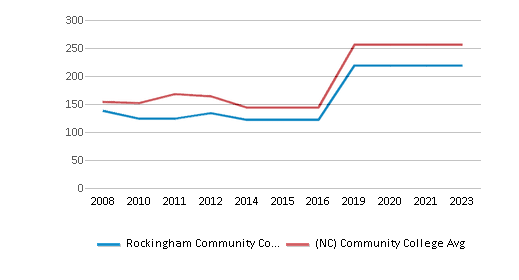
School Calendar
Student Body
The student population of Rockingham Community College has grown by 5% over five years.
The student:teacher ratio of 10:1 has increased from 9:1 over five years.
The Rockingham Community College diversity score of 0.58 is less than the state average of 0.66. The school's diversity has stayed relatively flat over five years.
Total Enrollment
2,133 students
2,542 students
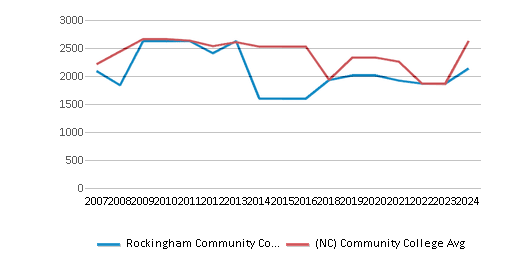
Student : Teacher Ratio
10:1
13:1
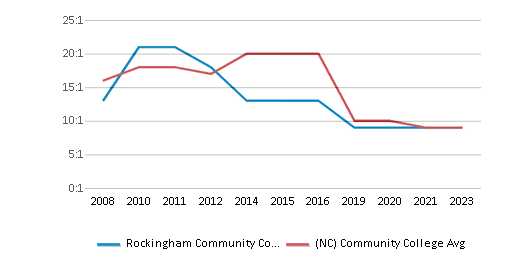
# Full-Time Students
513 students
766 students
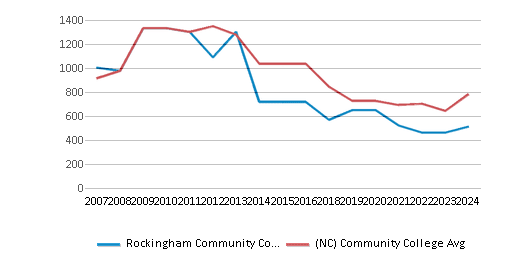
# Part-Time Students
1,620 students
1,813 students
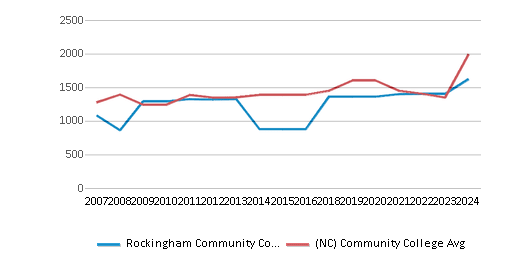
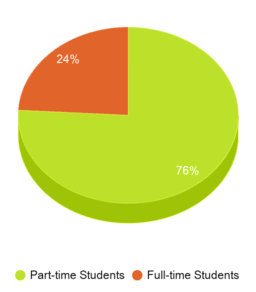
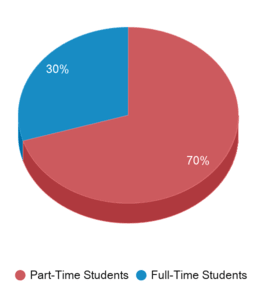
# Enrollment Undergraduate
213 students
316 students
# Full-Time Undergraduate Students
513 students
766 students
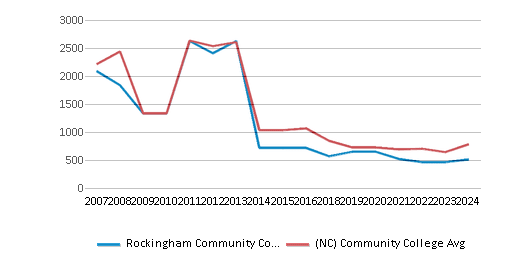
# Full-Time Graduate Students
n/a
22 students
# Part-Time Undergraduate Students
1,620 students
1,990 students
# Part-Time Graduate Students
n/a
3 students
Total Dormitory Capacity
n/a
717 students
% American Indian/Alaskan
n/a
1%
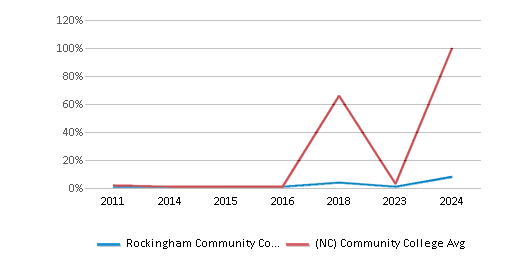
% Asian
1%
3%
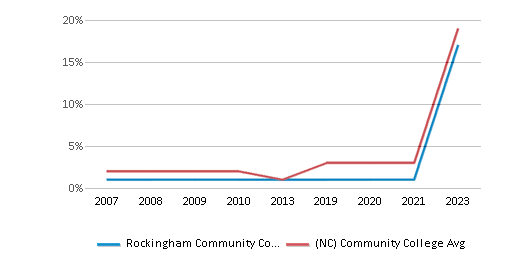
% Hispanic
9%
13%
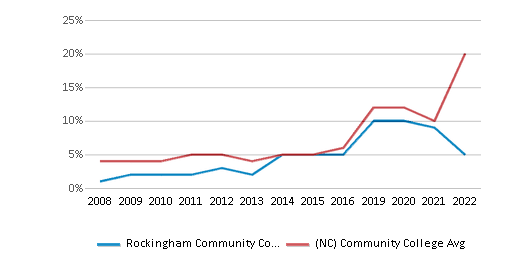
% Black
17%
21%
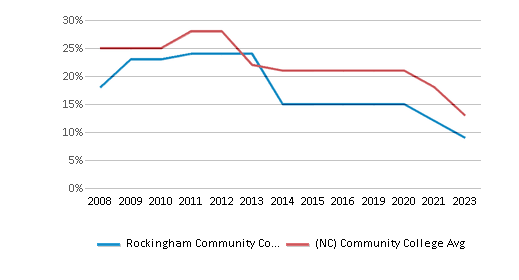
% White
62%
52%
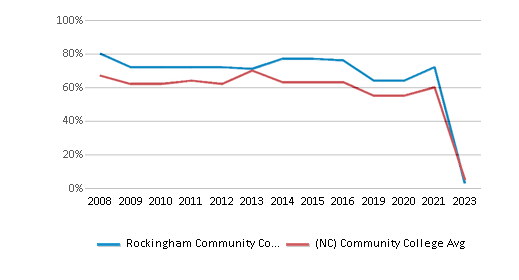
% Hawaiian
n/a
1%
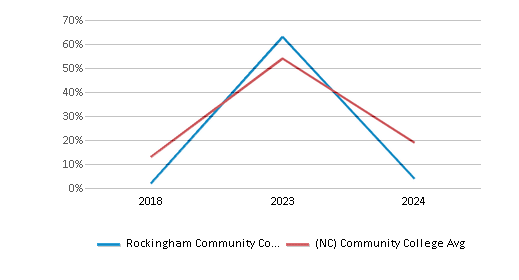
% Two or more races
5%
3%
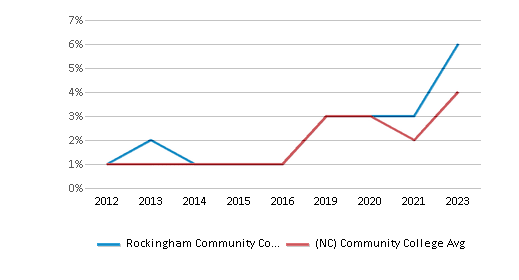
% Non Resident races
1%
1%
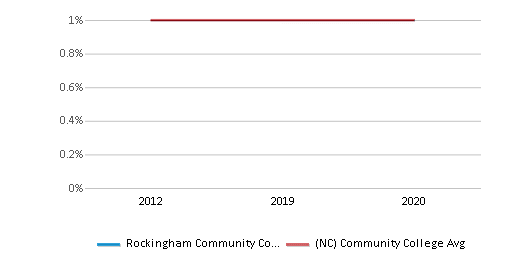
% Unknown races
6%
5%
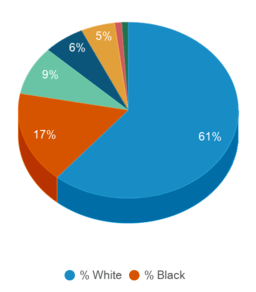
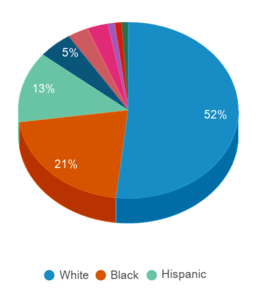
Diversity Score
0.58
0.66
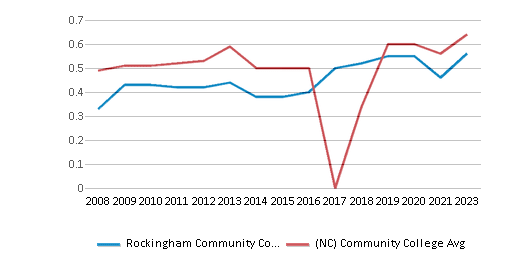
College Completion Rate (Students who graduate in less than 4 years)
0.2266%
0.3684%
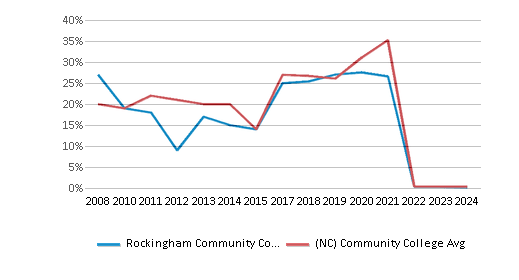
College Completion Rate (Students who graduate in 4 years or more than 4 years)
n/a
0.4286%
Average Graduate Earnings (10 Years)
$28,500
$27,500
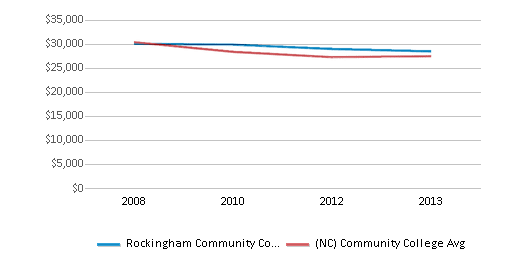
Tuition and Acceptance Rate
The public in-state tuition of $1,844 is less than the state average of $3,915. The in-state tuition has declined by 6% over four years.
The public out-state tuition of $6,452 is less than the state average of $9,508. The out-state tuition has stayed relatively flat over four years.
In-State Tuition Fees
$1,844
$3,915
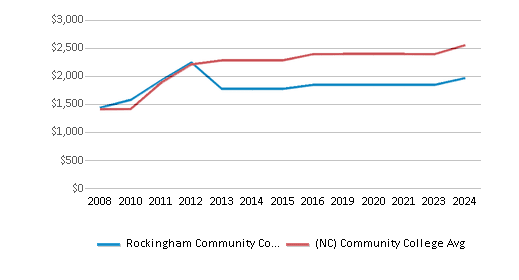
Out-State Tuition Fees
$6,452
$9,508
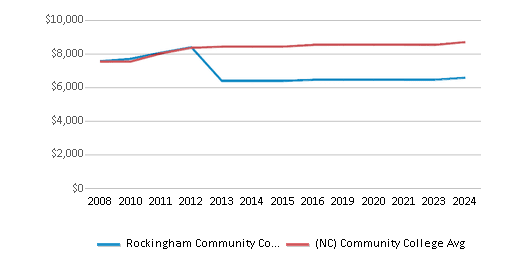
% Students Receiving Some Financial Aid
86%
82%
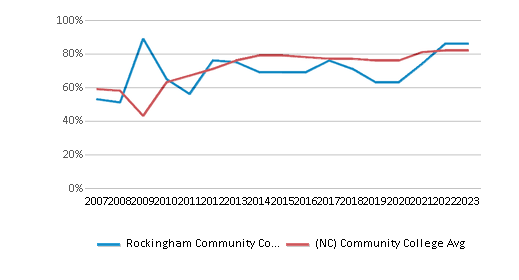
Median Debt for Graduates
n/a
$11,865
Median Debt for Dropouts
n/a
$5,846
Acceptance Rate
n/a
82%
SAT Reading
n/a
488
SAT Math
n/a
498
ACT Composite
n/a
20
ACT English
n/a
13
ACT Math
n/a
16
Source: 2024 (or latest year available) Integrated Postsecondary Education Data System (IPEDS)
School Notes
- In December 1963, State Board of Education grants charter for Rockingham Community College. Trustees hold first meeting, electing Welsford Bishopric of Eden as chairman. In January 1966 groundbreaking ceremony is held as work begins on first four buildings (Shop, Classroom, Laboratory, and Learning Resources Center). Classes begin in Shop, Laboratory, and Classroom buildings on October 1966 as workmen add finishing touches. Located on 274 acres of stately pines, Rockingham Community College features scenic nature trails, tennis courts, and beautifully landscaped grounds. Classes are held in twelve of 18 buildings; the newest addition completed in 2005 houses the college's Community and Workforce Education Division. By completing courses in the Arts and Sciences, students can earn Associate in Arts, Associate in Science, or Associate in Fine Arts degrees. These degrees are designed to prepare students to continue their education as juniors in their field of study. The College Transfer Program is offered as part of the Comprehensive Articulation Agreement (CAA) which governs the transfer of credit between community colleges and most 4-year colleges and universities in North Carolina. The courses in the College Transfer Program include a 44 hour semester General Education Core and 20-21 additional semester hours. Rockingham Community College offers career programs. These programs offer practical, applications-oriented nstruction in well-equipped lab facilities. Our instructors bring many years of professional work experience to the classroom. Through their experience, you will learn how theory relates to practical application. Rockingham Community College is accredited by the Commission on Colleges of the Southern Association of Colleges and Schools to award Associate Degrees.
Frequently Asked Questions
How much does Rockingham Community College cost?
Rockingham Community College's tuition is approximately $1,844 for In-State students and $6,452 for Out-State students.
What schools are Rockingham Community College often compared to?
Rockingham Community Collegeis often viewed alongside schools like Guilford Technical Community College, Forsyth Technical Community College by visitors of our site.
What is Rockingham Community College's ranking?
Rockingham Community College ranks among the top 20% of community college in North Carolina for: Least expensive tuition.
Recent Articles

Obtaining Your Bachelor's Degree at a Community College
Explore the evolving landscape of community colleges offering bachelor's degrees, addressing affordability, accessibility, and workforce needs.

A to Z of Community College Certificates and Courses
From business and healthcare to technology and skilled trades, the article showcases the breadth of options available to students seeking to enhance their knowledge, develop new skills, or pursue career advancement.

What is a Community College?
This comprehensive guide explains what a community college is, its history, and its role in higher education. It covers the types of programs offered, differences from four-year colleges, benefits of attending, and important considerations for prospective students, providing valuable insights for those exploring educational options.










